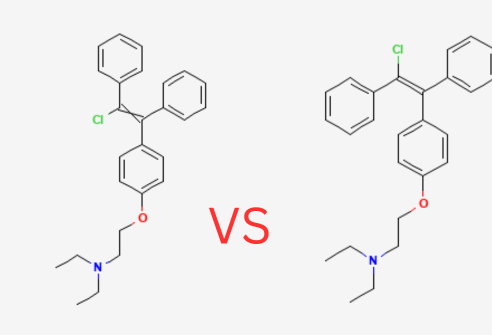In recent years, the potential impact of melatonin on testosterone levels has become a topic of considerable interest and debate among health professionals and the public alike. The question of if Melatonin decreases testosterone can’t be simply answered with a yes or no. Melatonin, often referred to as the “sleep hormone,” plays a crucial role in regulating our sleep-wake cycles. Its production, controlled by the pineal gland in the brain, is influenced by the light-dark cycle, with levels peaking at night to promote sleep and lowering during the day to facilitate wakefulness.
Testosterone, on the other hand, is the primary male sex hormone, vital for many aspects of male health including muscle mass, bone density, and the regulation of mood and libido. As men age, testosterone levels naturally decline, leading to potential health issues such as reduced muscle mass, energy levels, and libido.
The question of whether melatonin supplementation, widely used to improve sleep quality, could inadvertently lead to decreased testosterone levels is of particular concern. This article delves into the scientific evidence surrounding this relationship, aiming to provide a balanced view based on current research findings.
Exploring the Connection Between Melatonin and Testosterone
Research Overview
The scientific community has produced mixed findings regarding the impact of melatonin on testosterone levels. Some studies suggest that melatonin might inhibit testosterone production, potentially through its effects on the hypothalamo-pituitary-gonadal (HPG) axis, a key hormonal pathway involved in the regulation of testosterone secretion. For instance, some research points to animal studies where melatonin administration led to decreased levels of luteinizing hormone (LH) and testosterone in rats.
Conversely, AFD Pharma presents an alternative view, suggesting that melatonin could actually boost testosterone levels by increasing the secretion of LH, which in turn stimulates testosterone production in the testes. This bi-directional hypothesis indicates a complex interaction between melatonin and testosterone, possibly influenced by factors such as dosage, timing of supplementation, and individual physiological differences.

The Role of Sleep
Quality sleep is fundamental to optimal testosterone production. The Sleep Foundation notes that testosterone levels rise during sleep, with the highest levels typically observed in the morning after a night of healthy, uninterrupted sleep. Insufficient sleep or sleep disorders like sleep apnea can disrupt this natural rhythm, potentially leading to decreased testosterone levels. This underscores the importance of addressing sleep quality as a key factor in maintaining hormonal balance and overall health.
Conflicting Results and Current Understanding
The scientific inquiry into how melatonin interacts with testosterone levels illustrates the complexity of hormonal regulation within the human body. While some researchers argue that melatonin may decrease testosterone through its influence on the body’s hormonal balance, particularly affecting the sleep-wake cycle and potentially altering the secretion of hormones critical for testosterone production, others suggest a more nuanced relationship. Studies have shown varying outcomes, with some indicating a direct suppressive effect of melatonin on testosterone production, while others have found no significant impact or even an indirect boost to testosterone levels through improved sleep quality.
A pivotal factor in these conflicting results is the diversity in study methodologies, including differences in the timing and dosage of melatonin administration, the demographic characteristics of study participants, and the duration of study periods. For instance, short-term use of melatonin in a clinical setting may not accurately reflect the long-term effects of melatonin supplementation at home. Furthermore, individual variations in melatonin sensitivity and metabolic processing can lead to differing outcomes, making it challenging to generalize the findings.
Given these complexities, it’s evident that more targeted research is necessary. Future studies should aim to clarify the optimal conditions under which melatonin supplementation could be beneficial or detrimental to testosterone levels, taking into account factors such as age, baseline hormone levels, and lifestyle factors.

Factors that may influence Testosterone Levels
Understanding what affects testosterone levels is crucial for men seeking to maintain or improve their hormonal health. Several factors can influence testosterone production, some of which can be managed or mitigated through lifestyle adjustments or medical intervention.
Factors That Potentially Boost Testosterone
- Diet and Nutrition: A balanced diet rich in zinc, vitamin D, and omega-3 fatty acids has been linked to higher testosterone levels. Foods such as fatty fish, leafy greens, and nuts are beneficial.
- Regular Exercise: Especially strength training and high-intensity interval training (HIIT) have been shown to increase testosterone levels in men.
- Adequate Sleep: Quality sleep is directly linked to testosterone production. Ensuring 7-9 hours of sleep per night can help maintain optimal levels.
- Stress Reduction: High levels of stress are associated with the production of cortisol, a hormone that negatively affects testosterone. Practices such as meditation, yoga, and mindfulness can help lower stress levels.
Factors That Potentially Decrease Testosterone
- Excessive Alcohol Consumption: Regular heavy drinking has been shown to decrease testosterone levels and impair testicular function.
- Obesity: Excess body fat, particularly abdominal fat, can lead to lower testosterone levels by converting testosterone into estrogen.
- Certain Medications: Some medications, including opioids and glucocorticoids, can negatively affect testosterone production.
- Poor Sleep Habits: As mentioned, inadequate sleep can significantly lower testosterone levels, underscoring the importance of good sleep hygiene.
Suffering from low testosterone?
The relationship between melatonin supplementation and testosterone levels remains complex and multifaceted, with research offering various perspectives. While some evidence suggests a potential inhibitory effect of melatonin on testosterone production, other studies highlight its benefits for sleep quality, which in itself is crucial for maintaining healthy testosterone levels. Given the importance of both hormones in male health, it’s essential for individuals to consider their personal health profiles, lifestyle factors, and, if necessary, consult healthcare professionals before making decisions about melatonin supplementation. If you’re experiencing symptoms that might be related to low testosterone, or if you have concerns about how melatonin affects your hormonal health, Empower Men’s Clinic offers specialized guidance and support tailored to your needs. Visit Empower Men’s Clinic to learn more about how we can help you achieve optimal health and well-being.


